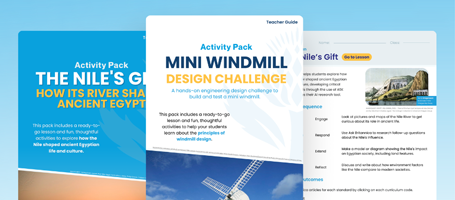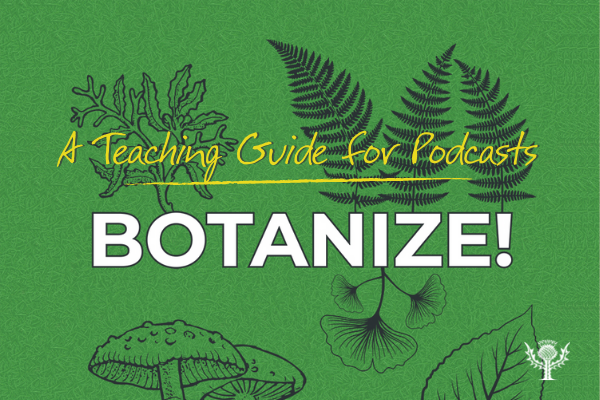From parasitic plants to kelp forests, Botanize! – the new podcast series from Britannica – aims to showcase some of Earth’s finest nonanimal life-forms and their brilliant ecologies.
Our editors talk to experts about some of the world’s most remarkable plants, fungi and algae. These overlooked organisms have fascinating evolutionary stories to tell about survival, exploitation, adaptation and general scrappiness.
For teachers using the Podcast in class, the following activities can be used as a supplementary guide to support student learning.
Listen to the full Botanize! series on Britannica School (Australia).
Teacher Tip:
Schools subscribed to the New Zealand or Asia version of Britannica School can also tune into this podcast at:
Britannica School (New Zealand) ↗
Britannica School (Asia) ↗
Britannica School (Asia version in China) ↗
Why use Podcasts for Learning?
A podcast, according to Robert Rozema, is “a blog in audio form.” It is a form of oral storytelling and is a great educational tool for a bunch of reasons;
- Authentic Voice: Podcasts provide examples of how people really talk, they often involve real conversations, interviews and speech
- Diversity: Podcasts demonstrate a variety of languages, accents and cultures
- Convenient: You can listen anywhere and anytime as long as you have access to the Internet
- Interesting: Podcasts are engaging, their format is designed to be interesting and entertaining for the curious minded learner
- Improve Speaking: Listening activities like a podcast can improve students’ listening skills
Botanize! Activities
Introduction
- Play an episode from the “Botanize!” podcast. These tasks can be repeated for any episode.
- Using listening skills discuss the following:
- What is the episode about? What is the main idea?
- Who is speaking/being interviewed?
- What is the subject or topic being talked about?
- What parts of the podcast were interesting? Boring? Why?
- How is it structured? What do the podcasters do at the beginning, at the end and between transitions?
- How does the podcaster build the story or argument?
- Are there any sound effects, music, and other tools used? If so, for what effect?
- What questions do you have as a result of listening?
Botanize! Task 1
Listen to the episode again and take notes.
- What aspects of the podcast did you enjoy?
- What aspects would you avoid?
On large pieces of paper, using coloured markers, have students draw, write keywords, link ideas, make connections about key themes and techniques used during the podcast. etc.
Botanize! Task 2
Discuss “How would you respond to the podcaster?” Use ideas gathered from discussions to write a letter to the podcaster.
Botanize! Task 3
Listen to another episode of the podcast.
Conduct a Socratic Session. A Socratic Session is a formal discussion based on the podcast. The leader (can be a student or teacher) asks open-ended questions for students to respond to. Students listen closely to others responses, critically thinking about the responses and sharing their own thoughts and ideas with the group. It is about cooperation and sharing.
Botanize! Task 4
Have students create their own podcast thinking about the techniques they identified in Task 1. Some ideas include;
- Travel Guide Audio Tour – give an audio tour of a local tourist attraction.
- Explore a Culture or Tradition – talk about a tradition or culture.
- Current News Events – create a news broadcast about a current news event.
- Debate – host a debate and record the conversation that ensues.
- Interviews – interview a guest about an interesting topic.
- Review – create an audio review for a book, movie or performance etc.
TIP: Before creating their own podcast have students think about;
- Intended audience
- Purpose
- Name/title
- Length/run time
- Draft a script
- Practice reading and speaking aloud
- Record shorter portions of audio and then editing snippets together
- Music and sound effects
These activities and resources have been created using content from Britannica School, the go-to site for safe, comprehensive student research. Contact your librarian to find out if your institution already has access. Find out more about Britannica School or set up your own free trial.
More Educator Resources
Sign up with your email for more free resources from Britannica.

